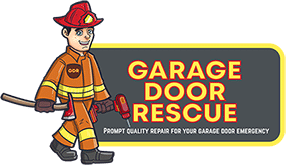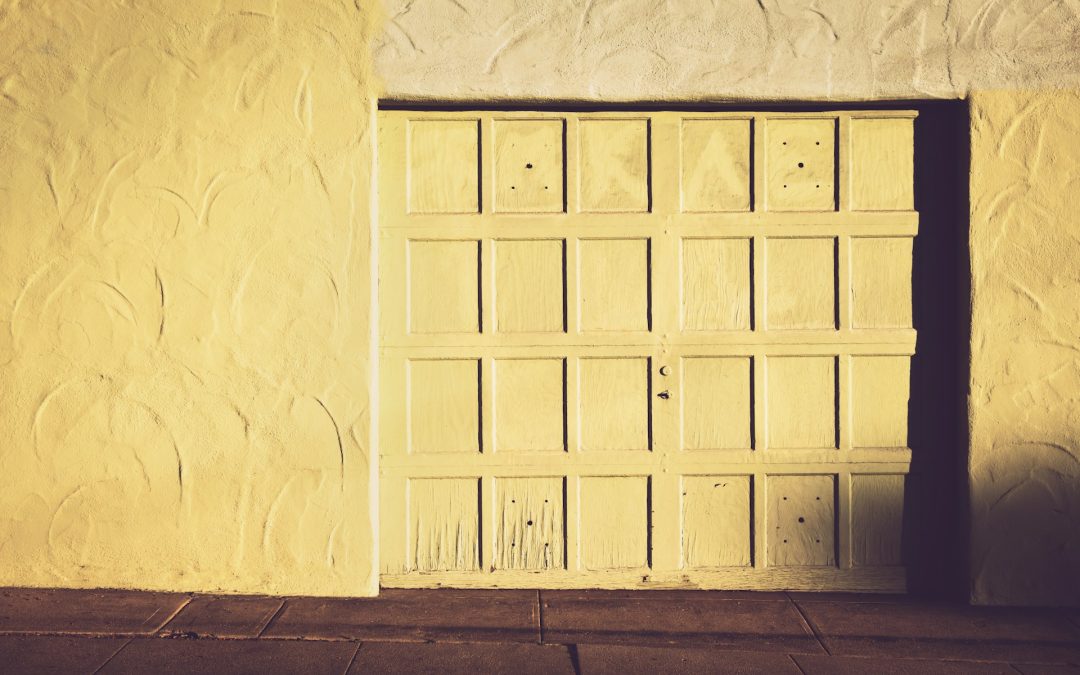A noisy garage door can be more than just an annoyance; it can be a sign that something is wrong with your garage door system. Whether it’s a grinding sound, a loud bang, or a constant squeak, these noises can point to different issues that need attention. Understanding what those sounds mean can help you figure out the next steps to take.
Many homeowners experience noisy garage doors and might not realize that these sounds often signal the need for maintenance or repair. Different noises can indicate different problems, such as worn-out parts, lack of lubrication, or misalignment. It’s important to identify the type of noise to understand what might be causing it and how to fix it.
Knowing when to tackle these issues yourself and when to call a professional can save you both time and money. In the following sections, we’ll explore the various types of garage door noises, common causes, some DIY solutions you can try, and when it’s best to get help from an expert. This guide will help you keep your garage door functioning smoothly and quietly.
Identifying Different Types of Garage Door Noises
Understanding the different types of noises your garage door can make is crucial for diagnosing the issue. Here are some common sounds and what they might indicate:
1. Grinding or Screeching: A grinding sound usually indicates metal parts rubbing against each other. This could be due to worn-out rollers or a lack of lubrication.
2. Banging or Popping: These sounds often occur when a garage door spring breaks. The loud bang is a result of the spring releasing its stored energy suddenly.
3. Rattling or Clunking: Rattling or clunking can mean that some nuts and bolts may have come loose, or there might be an issue with the door’s tracks.
4. Squeaking: Usually a squeaking noise is a sign that parts of the door, like the hinges, rollers, or tracks, need lubrication.
Identifying these sounds can help you pinpoint the problem area in your garage door system. Once you know what type of noise you’re dealing with, it becomes easier to figure out the next steps for fixing the issue.
Common Causes of Garage Door Noises
Several common issues can cause your garage door to make noise. Here’s a rundown of what to watch out for:
1. Lack of Lubrication: One of the simplest causes of a noisy garage door is a lack of lubrication. The moving parts of the door, such as the rollers, hinges, and springs, need regular lubrication to function smoothly.
2. Worn-out Rollers: Over time, the rollers that help your garage door move up and down can wear out. When they start to wear, they can create a grinding or squeaking noise.
3. Loose Hardware: Garage doors have many nuts, bolts, and screws. With regular use, these can become loose, causing rattling or clunking noises.
4. Damaged Springs: Springs are an essential part of the garage door system. If they are damaged or broken, they can cause loud banging or popping sounds.
5. Misaligned Tracks: The tracks guide the garage door as it moves. If these tracks become misaligned, they can cause a rubbing or scraping noise as the door moves.
By understanding these common causes, you can better identify what might be wrong with your garage door. These insights will help you determine whether it’s a problem you can fix yourself or if it’s time to call a professional for help.
DIY Solutions to Reduce Noise
Some garage door noise problems can be fixed with simple DIY solutions. Here are a few steps you can try to reduce or eliminate those annoying sounds:
1. Lubricate the Moving Parts: One of the easiest ways to reduce noise is by lubricating the moving parts of your garage door. Use a high-quality silicone-based lubricant on the springs, rollers, hinges, and tracks. Avoid using WD-40, as it’s not suitable for this purpose.
2. Tighten Loose Hardware: Check all the nuts, bolts, and screws on your garage door and its tracks. Use a socket wrench to tighten any that are loose. Be cautious not to overtighten, as this can cause other problems.
3. Replace Worn-out Rollers: If the rollers are worn out, they can make grinding or squeaking noises. Swapping out old metal rollers for nylon rollers can make a significant difference, as nylon is quieter and requires less maintenance.
4. Adjust the Tracks: Ensure that the tracks are properly aligned. You can gently tap the tracks with a rubber mallet to realign them if needed. Make sure the tracks are parallel to each other and securely fastened to the wall.
5. Install Noise-Reducing Accessories: There are several noise-reducing accessories available, such as anti-vibration pads that sit under the garage door opener and new hinges designed to reduce noise. These small changes can make a big difference.
These DIY solutions can help you manage common noise problems with your garage door. However, some issues may require professional intervention.
When to Call a Professional for Noisy Garage Doors
Sometimes, no matter how many DIY fixes you try, the noise persists. Here’s when it’s time to call a professional:
1. Persistent Noise After DIY Fixes: If your garage door still makes noise after you’ve tried lubricating and tightening everything, it’s a sign that the issue might be more significant and requires expert attention.
2. Broken or Damaged Springs: Garage door springs handle a lot of tension and can be dangerous to replace on your own. If you suspect a spring is broken, a professional can safely and efficiently handle this repair.
3. Complex Alignment Issues: If adjusting the tracks doesn’t solve the noise problem, the tracks might be misaligned more seriously, requiring professional tools and expertise to fix.
4. Motor Problems: Noisy garage door openers can indicate an issue with the motor or gears inside the opener. Professionals have the expertise to diagnose and repair these kinds of problems.
5. Safety Concerns: Any safety-related issues, such as the door not reversing when an obstruction is detected, should be handled by a professional immediately. Your safety should always come first.
Calling a professional ensures the job is done correctly and safely. They can diagnose problems that might not be visible and offer long-term solutions.
Conclusion
Dealing with a noisy garage door can be frustrating, but understanding the types of noises and their causes can help you address the issues effectively. DIY solutions like lubrication, tightening hardware, and replacing rollers can often fix common noise problems. However, there are times when professional help is necessary, especially when dealing with persistent noise, broken springs, complex alignment issues, motor problems, or safety concerns.
Keeping your garage door in good working condition ensures smooth operation and prevents further damage. Regular maintenance and timely repairs can go a long way in avoiding unexpected issues. If you’re dealing with a noisy garage door and DIY fixes aren’t helping, it’s time to seek professional assistance.
For expert garage door repair and maintenance, contact Garage Door Rescue. Our team is here to help you ensure your garage door operates quietly and efficiently. Schedule a service today and let us take care of your noisy garage door.

